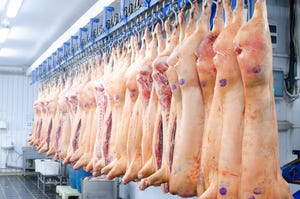Philippines extends lower pork tariff rates through 2024
Making pork more consistently accessible and affordable can improve food security and bolster consumption.
December 26, 2023

The U.S. pork industry received good news from a major trading partner as the Philippines will extend reduced tariff rates on imported pork for another year. The reductions were set to expire Dec. 31, but will now remain in place through the end of 2024.
"The reduced pork tariffs for inbound cargo from the U.S. have been in place since mid 2021. These were originally implemented to stabilize the pork supplies as the Philippines was recovering from African swine fever, and these rate cuts were due to expire at the end of this month, but have now been extended," says U.S. Meat Export Federation President and CEO Dan Halstrom. "And just for some reference, the in-quota duty rate normally is at 30%, and with reduced rates, they'll be 15. And the out-of-duty quota rate, normally 40%, will be reduced to 25%. So, while this is good news, even at these lower rates, it's still a relatively high duty."
USMEF is hopeful that the Philippines will eventually offer longer-term tariff relief. Halstrom notes that making pork more consistently accessible and affordable can improve food security and bolster consumption, and this can actually benefit domestic pork producers.
"I think the key here is to make pork protein raw material more available to the average consumer … in the sense of improving food security and bolstering the consumption. And that's the ultimate goal in many of these markets, is to create a situation where per capita consumption increases over time, which then benefits not only imports, but the domestic pork industry as well in the Philippines," Halstrom says.
"South Korea and Colombia are good examples of countries that started out with very high duties for inbound pork. Now, you know, they're much lower or duty free, and we're seeing a situation there where industry is expanding, per capita consumption has grown over time, and that has benefited the domestic pork in both South Korea and Colombia. At the same time, imports have been booming. So that's the ideal situation - if you can grow the pie in whole, it benefits all parties."
You May Also Like
.png?width=300&auto=webp&quality=80&disable=upscale)


